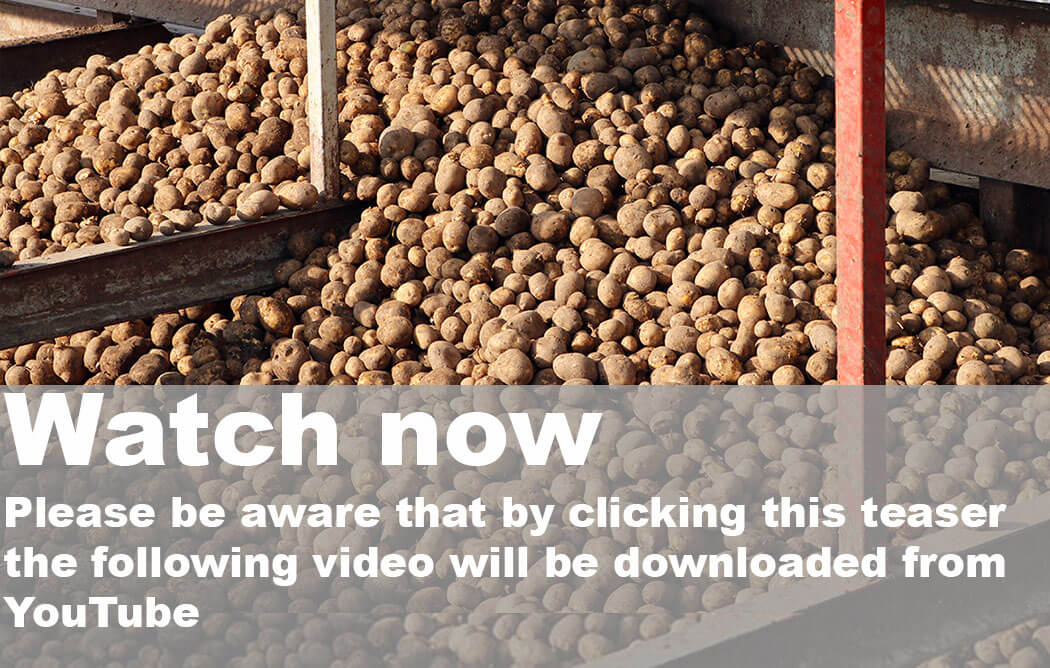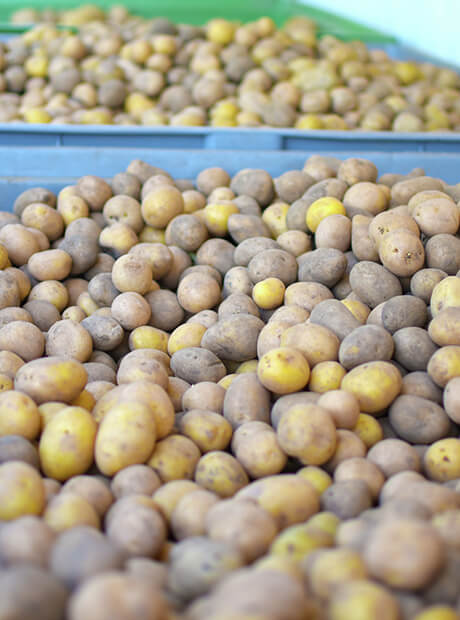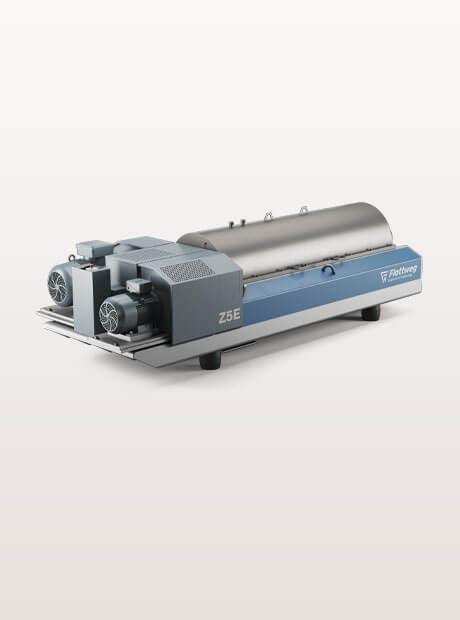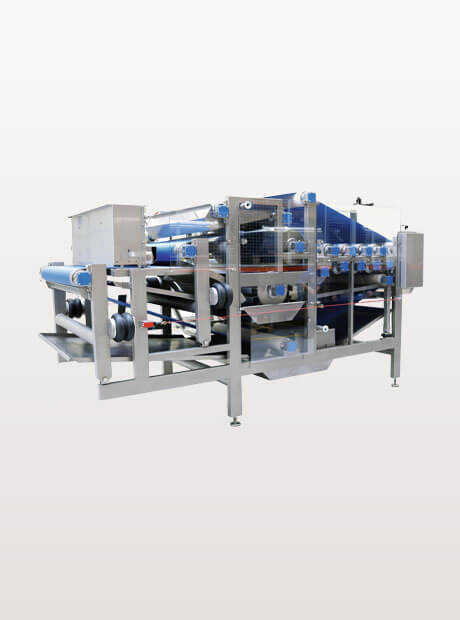2021-06-21
Natural all-round talent: The potato shows its strength
Potatoes are starch plants, they provide regenerative raw material for foodstuffs and animal feed production, as well as for use in the paper and textile industries. Potato fiber is used for human consumption and proteins are a valuable resource for animal fodder. In the future, they will become an even more useful source of human food. But the processing of potatoes is complex and expensive. So environmentally friendly and cost-saving methods are therefore in great demand. The Swedish company Lyckeby Starch relies on a decanter and a belt press from Flottweg to optimize the process.
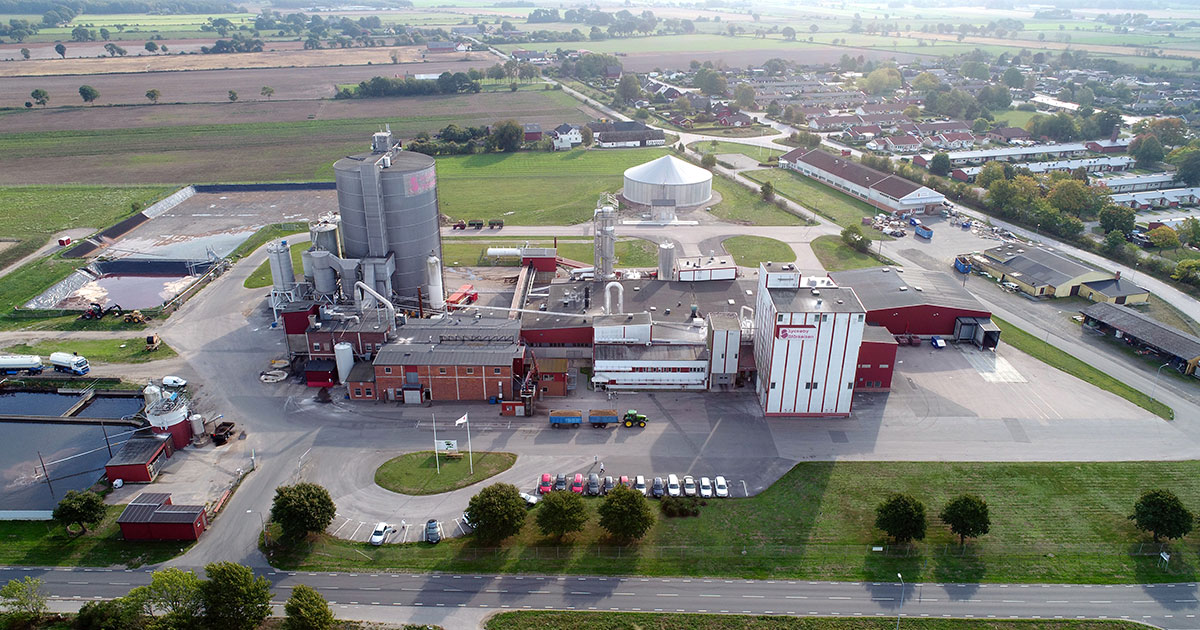 The company Lyckeby Starch is from Mjällby, Sweden
The company Lyckeby Starch is from Mjällby, SwedenThe Background
The potato has many names: For example, the potato is known as the spud or tuber. Originally at home in South America, the potato made its European debut in the 16th century and was initially appreciated as a decorative plant for its pretty flowers. Nowadays, this nightshade plant is cultivated almost everywhere and ranks fourth after rice, wheat and corn as the world‘s most important foodstuff. But the versatile tuber can do much more.
This can be seen most impressively in Mjällby in southern Sweden. Around 500 farmers bring their potato harvests to the Lyckeby Starch Company where they are processed to produce raw materials for the global food and paper industries. The cooperative alone produces 75,000 tonnes of starch every year - plus fibres and proteins.
In general, potatoes contain approximately 75% water, 21% starch and 4% other substances, with the composition varying according to variety. In comparision to other starch suppliers such as wheat and corn, the potato‘s starch grains are larger. Their gelatinization temperature is also lower, i.e. if potato starch is mixed with water, the mass already thickens at 50 degrees - Corn & Co. require 70 degrees for this. Potato starch is therefore particularly suitable for the food and paper industries as well as for the chemicals sector, for example for adhesives and paints.
Potato starch production has a long tradition, but processing is complex. Lyckeby Starch relies on Flottweg‘s proven centrifuge technology to achieve better resource utilization and cost savings. The German Flottweg company has been supplying the vegetable processing industry with suitable decanter centrifuges and belt presses for over 30 years. These are used, for example, for the extraction of wheat starch, corn gluten and pea proteins - and of course also
The Challenge and the Solution
Resource-conserving processing saves water and costs
Like everywhere else, at Lyckeby Starch the tubers are first thoroughly washed to remove soil and impurities. After washing, the potatoes are shredded into tiny fibers. The starch is then separated from the fibers in a separate process step.
What remains is the so-called potato pulp. This is where Flottweg‘s solutions come in, because the mass has to be dried so that the fibres can be extracted. Lyckeby Starch previously used up to 20 spindle presses for this purpose, but these required a very high level of maintenance. „We had to deploy our own staff to do this,“ says Thomas Arnesson, Technical Manager at Lyckeby Starch. „With the Flottweg belt press, we were able to greatly simplify the process. We can use them continuously for a week without additional maintenance and personnel costs. They can then be easily cleaned between production runs.“
Another advantage of the belt press over other processes is that the pulp can be dewater to a greater extent. After dewatering
the potato pulp, the total dry solids is decisive for the resulting drying costs. The Flottweg belt press dewaters the potato pulp in a continuous process to reach the highest possible result. The water used can be fed back into the process. This makes the process more cost-effective.
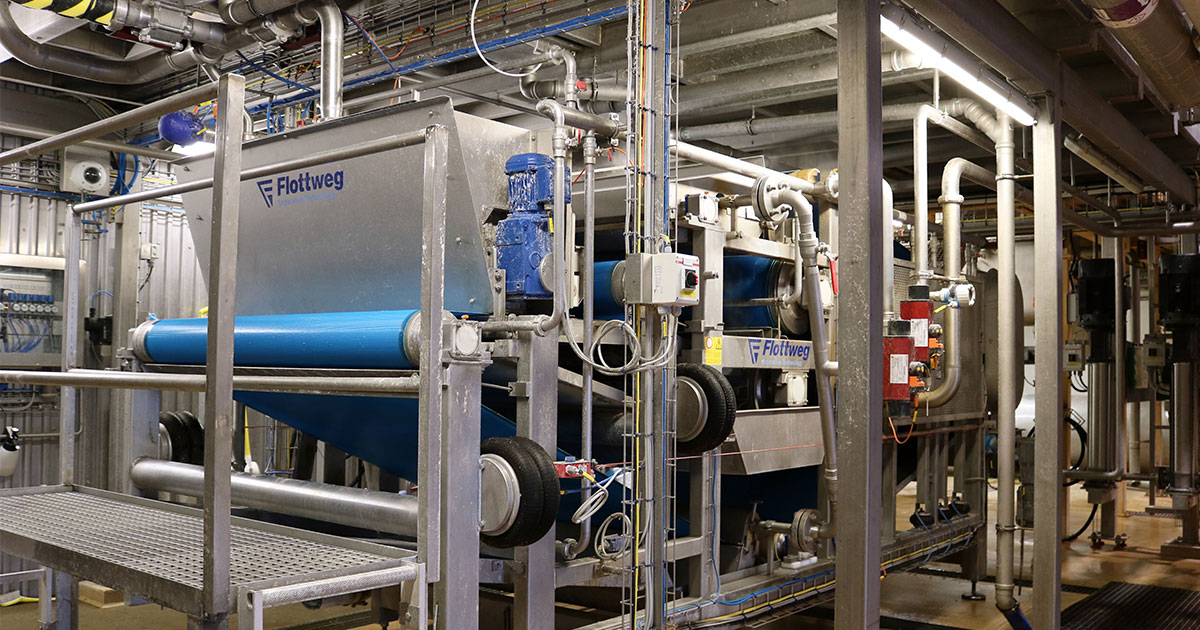 The Flottweg belt press dewaters the resulting potato pulp in a continuous process to the highest possible total dry solids. The water used can be resupplied to the process.
The Flottweg belt press dewaters the resulting potato pulp in a continuous process to the highest possible total dry solids. The water used can be resupplied to the process.More than animal feed: Plant-proteins from potatoes
The extraction of starch produces a large amount of liquid, the so-called fruit juice. This isn‘t just waste either: It still contains about three percent valuable protein, which is used dried as animal feed. A decanter Z6E from Flottweg is used at Lyckeby Starch to recycle the much sought-after raw material. In the process, the fruit juice is first heated to over 100 degrees celsius. At the same time the pH value is lowered to 4.5. The combination of low pH value and high temperature causes the proteins to coagulate thus allowing them to be separated in the decanter process. In the decanter, the rotational speeds of the drum and screw provide the centrifugal forces required for the heavier materials to settle on the inner wall of the drum. The screw inside the bowl with its hollow shaft is responsible on the one hand for the supply of the unseparated liquid and on the other hand responsible for the transport of the solids in the direction of the conically narrowed bowl end. The solids move continuously into the tapered part of the bowl and the clarified liquid is drawn off via the peeling disc.
With the decanter Z6E, the procedure at Lyckeby Starch has been significantly improved. The model has an adjustable peeling disc so that the separation result can be continuously adjusted as required during production. „Many other models don‘t have this feature. This means that production would have to be stopped every time an adjustment is necessary,“ Arnesson explains. „That‘s why we chose Flottweg‘s solution. In addition, the decanter has a good cleaning system, which is particularly effective due to the special arrangement of the spray heads, especially in conjunction with the peeling disc“. The investment is also worthwhile in the long term: The protein decanter is equipped with high-quality bearings and seals that permanently withstand high temperatures. Companies that process potato starch benefit from its high-quality and reliability. Particularly during the potato harvest period from August to December, the equipment must not break down under any circumstances. Even a short standstill during this time would be fatal.
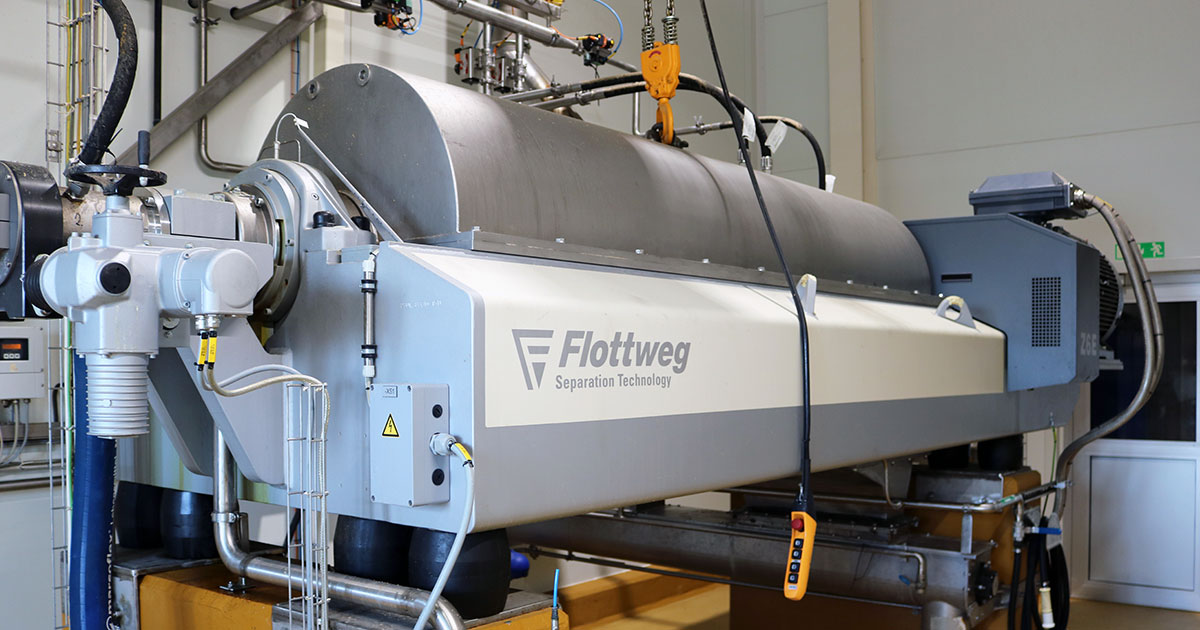 Flottweg industrial centrifuges and belt presses extract starch, fiber and protein from potatoes.
Flottweg industrial centrifuges and belt presses extract starch, fiber and protein from potatoes.Summary - Perspectives for the future
The extraction of protein from potatoes is generally a well-established process that is to be further optimized so protein can also be used for human nutrition. Population growth and nutritional trends such as veganism are also increasing the demand for vegetable proteins. So far, this demand is mainly satisfied by soy proteins. But the demand for non-genetically modified alternatives is strong. At present, these are mainly pea proteins, but potatoes should also be better exploited here in the future. Granted, not an easy task. Because of the high temperatures, the proteins lose some of their most important properties during processing. Therefore, new processes are required. Because with optimal processing, vegetable raw materials can be used even better. Industrial centrifuges and belt presses like the solutions from Flottweg help to use valuable resources responsibly.
Abouth the Author
Nils Engelke
Nils Engelke is PR and Communications Managr at Flottweg SE.
Manfred Kropp
Manfred Kropp is Sales Engineer for starch processing at Flottweg SE.
Are you interested in Flottweg centrifuges for the production of potato starch?
Talk or write to us!

